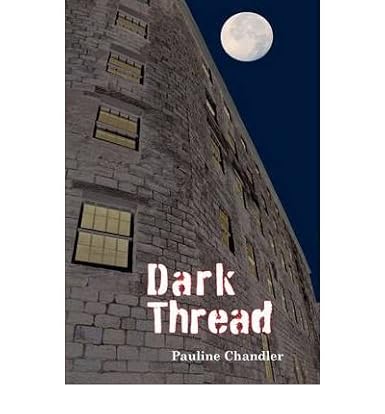On a general note, Dark Thread is a perfect example of what happens when authors refuse to lie down and die. It was first published by OUP, a prestigious publisher if ever there was one. It was discarded as soon as it was seen that it was not going to be a roaring profitmaker even though it was a critical and artistic success. So the process which so many authors have experienced and which at one time seemed irreversible will have been completed.
But the process is no longer irreversible, as Electric Authors - and others - have found out. Pauline Chandler is the latest author to join Authors Electric and she brings with her a wealth of high achievement which once, as her OUP experience shows, would have gone for nothing. She has thus joined a group of writers for whom such an experience is the story of their writing lives.
But the process is no longer irreversible, as Electric Authors - and others - have found out. Pauline Chandler is the latest author to join Authors Electric and she brings with her a wealth of high achievement which once, as her OUP experience shows, would have gone for nothing. She has thus joined a group of writers for whom such an experience is the story of their writing lives.
However, first of all, congratulations should go to the present print publisher, Five Leaves, a very interesting and enterprising small independent publisher based in the West Midlands, for reissuing a book which should not have gone out of print in the first place. Soon, Dark Thread will become an indie ebook as well as a print book and the transition will be complete.
Dark Thread is a haunting, unforgettable time-slip novel: it has an emotional undercurrent which most people will empathise with, it records in meticulous and convincing detail a particular time and place, it has a satisfying deep structure of guilt and absolution and above all it tells a compelling story. And, as you'll see below, it has a superbly evocative cover.
Dark Thread is a haunting, unforgettable time-slip novel: it has an emotional undercurrent which most people will empathise with, it records in meticulous and convincing detail a particular time and place, it has a satisfying deep structure of guilt and absolution and above all it tells a compelling story. And, as you'll see below, it has a superbly evocative cover.

In the present day, Kate is a weaver. She has learnt her craft from her mother. But her mother is killed in an accident, for which Kate blames herself. Her unjustified guilt feelings distort her mind: she will let nobody come near her, especially her father, whom she callously rejects. She is haunted by a recurring dream: a girl, an old woman, a grave. Her present-day anguish worsens: then, suddenly, she is in the past, over two hundred years ago, in Cromford Mill in Derbyshire, which was built by Richard Arkwright in 1771. It was the first cotton spinning mill powered by water and therefore has claims to be not only a harbinger of the Industrial Revolution but also the world's first modern factory.
Time-slip novels are not easy to pull off convincingly. The shift between the ages cannot be arbitrary: it must have causation which we can believe in. Kate’s vulnerability is finely managed: it leaves her open to phenomena which would meet outright disbelief unless we are willing to suspend it. It’s a measure of Pauline Chandler’s achievement that we suspend our disbelief gladly, because the time-slip, in this emotional context, is entirely appropriate, even inevitable.
The world Kate enters is hard and unforgiving. The industrial revolution and the process of human servility to the machine is just beginning. Kate finds herself in a family ruled by the mill. The girls, Matty and Ruth, initiate her into a working life which is hard and wearisome. But the most important character is Pentecost, the old lady of her dream, who can scry and who leads Kate into understandings which help her come to terms with her guilt.
Together with the urgency and subtlety of the story is a lovely evocation of the past, expressed in flexible prose and delicate, well-observed imagery.
I loved this book and it deserves to be widely read by a new generation of readers.
Dark Thread is available in a print edition published by Five Leaves (ISBN 9781907869563)
It will shortly appear on Kindle.
It will shortly appear on Kindle.
No comments:
Post a Comment